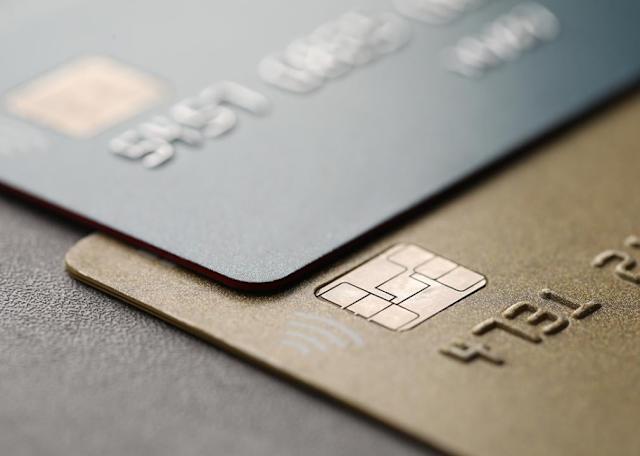How to Use Credit Cards Wisely to Strengthen Your Finances
Credit cards are powerful financial tools that, when used responsibly, can significantly improve your financial health. Many people fear credit cards due to potential debt and interest charges, but with proper management, these cards can turn into beneficial instruments to grow your credit score and financial opportunities.
Understanding how to use your credit cards wisely is essential for building a strong financial foundation. The key lies in managing your credit utilization and making payments on time. Keeping your credit card balances below 30% of your credit limit and always paying the full balance each month helps avoid interest accumulation and preserves your credit score.
The Importance of Maintaining Low Credit Utilization
Credit utilization, which refers to the percentage of your credit limit that you are using, is a significant factor in your credit score. Maintaining your balances under 30% signals to lenders that you are using your credit responsibly and not overextending yourself, which increases your likelihood of qualifying for loans with better terms.
For example, if you have a credit limit of $1,000, try to keep your balance below $300 at any time. This manageable use of credit not only positively affects your credit score but also controls your spending habits by preventing excessive debt buildup.
Paying Your Balances in Full to Avoid Interest Charges
One of the biggest advantages of credit cards comes with the grace period that allows you to pay off your purchases without interest if done in full by the due date. Carrying a balance results in interest charges that can accumulate quickly, turning manageable expenses into costly debt.
Always strive to pay your monthly statement balance entirely. This habit not only saves money on interest but also establishes a positive payment history, a critical factor considered by future lenders when assessing your creditworthiness.
Avoid Opening Multiple Credit Card Accounts for the Sake of Rewards
Although credit card rewards can be enticing, opening multiple credit cards just for the sake of collecting points or cashback can ultimately harm your credit profile. Managing many accounts increases the complexity of tracking payments and expenses, which can lead to missed due dates and higher debt.
Furthermore, multiple credit inquiries within a short period can negatively impact your credit score. This decrease can discourage lenders from offering you favorable terms. Overspending temptation also rises as having more available credit may lead you to spend beyond your means.
Focus on One or Two Well-Managed Cards
Instead of juggling numerous cards, it is wiser to maintain one or two that you manage effectively. This focused approach helps you build a solid positive credit history over time, demonstrating consistent responsibility to lenders.
With a good record on a limited number of cards, you can create long-term financial trustworthiness, which is essential when you apply for significant financial products such as mortgages, car loans, or business loans.
Turning Borrowing into Leverage for a Better Financial Future
Responsible credit card use is not merely about avoiding debt but about using borrowing as a leverage tool to reach larger financial goals. By showing lenders that you can manage credit carefully, you increase your chances of qualifying for loans with lower interest rates and better repayment terms.
This leverage can help you invest in opportunities such as purchasing property, starting a business, or furthering your education, thus improving your economic status in the long run.
Seeking Proper Legal and Financial Advice
If you find yourself struggling with credit card management or debt issues, seeking professional legal or financial advice is crucial. Skilled consultants can guide you through debt management strategies, negotiate with creditors, and help protect your rights under the law.
You can reach out through communications found in the bio or send a private message for proper assistance tailored to your situation.
- Maintain credit card balances below 30% of your credit limit;
- Always pay off your full balance to avoid interest charges;
- Avoid opening multiple credit card accounts chasing rewards;
- Use one or two well-managed cards to build positive credit history;
- Leverage responsible credit use for better loan opportunities;
- Seek professional legal and financial advice when needed.
Common Myths About Credit Cards Debunked
There are several misconceptions surrounding credit card use that can deter people from benefiting from them. Understanding the reality behind these myths can empower you to use credit cards more effectively.
Myth 1: Credit Cards Are Only for Spending Money You Don’t Have
Many believe that credit cards encourage reckless spending and debt accumulation. However, when used wisely, they function as financial tools that allow you to manage cash flow, earn rewards, and build credit history.
Myth 2: Having Multiple Credit Cards Is Bad for Your Credit Score
While opening many accounts irresponsibly can hurt your credit score, having multiple cards and managing them well can actually help your credit utilization ratio and show lenders your credit management skills.
Myth 3: You Must Carry a Balance to Build Credit
Carrying a balance and paying interest is unnecessary for building credit. Making timely full payments every month is the best way to establish a good credit history without incurring extra costs.
Effective Strategies for Managing Your Credit Cards
- Regularly monitor your credit reports to spot errors or fraudulent activities;
- Set up automatic payments to avoid missed due dates;
- Plan your budget to ensure you do not spend beyond your means;
- Use rewards and cashbacks to your benefit without overspending;
- Keep older credit card accounts open to improve credit age and history;
- Limit hard inquiries by applying for new credit sparingly.
How Credit Scores Affect Your Financial Life
Your credit score plays a pivotal role in many financial aspects, including loan approvals, interest rates, insurance premiums, and even employment opportunities in some cases. A high credit score saves you thousands of dollars over time by granting access to better financial products.
By using credit cards prudently and staying disciplined with your payments, you steadily increase your creditworthiness, helping you secure favorable financial terms in 2025 and beyond.
The Role of Credit Cards in Building Long-Term Financial Trust
Long-term financial trust is not built overnight. Consistency and responsibility in handling credit obligations send a strong signal to lenders and financial institutions. This trust often translates into increased credit limits, better loan approvals, and the confidence to pursue larger investments.
Credit cards provide a monthly record of your repayment behavior, making them one of the most straightforward tools for showcasing your financial reliability over time.
Credit cards, when employed wisely, serve as invaluable assets for strengthening your financial foundation. Keeping your balances low, paying in full each month, and limiting the number of cards to one or two well-managed accounts can significantly impact your credit score and financial opportunities positively.
By avoiding the pitfalls of opening excessive accounts chasing rewards and instead focusing on responsible credit behavior, you can leverage borrowing to meet your long-term financial goals. Remember, if you require proper legal or financial advice, professional help is available—reach out as recommended through bio communications or private messages to safeguard your financial future effectively.
Legal Marketplace CONSULTANT is a company specializing in comprehensive legal assistance and financial consultancy to support individuals in building and maintaining strong financial health.































